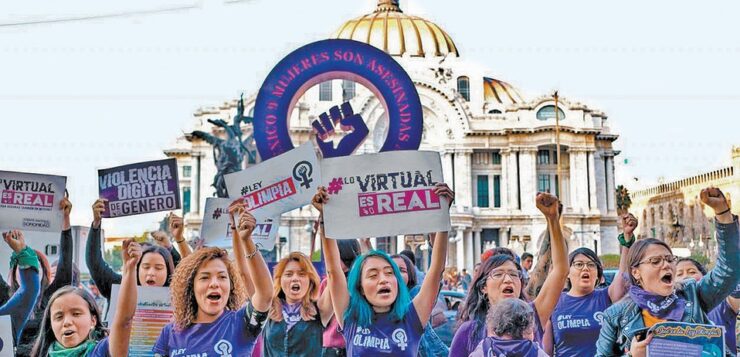
The Senate of the Republic approved in commissions and unanimously the Olympia Law so that at the national level harassment is punished, harassment and dissemination of sexual content through the Internet or social networks, and attacks against women in the media.

It contemplates penalties of 3 to 6 years in prison for aggressors, obliges internet pages to block content and immediately notify users when they commit violations; it includes digital as a new form of violence, and adds that which takes place in the media.
“This is a reform that guarantees the right to a life free of digital and media violence for girls, adolescents and women in our country. It was one of the debts we had with those who have been victims of these forms of violence and whose cases have not prospered due to the lack of classification of the crime ”, said the president of the Commission for Gender Equality Martha Lucía Micher.
As part of this ruling, it is established that judges and public ministries may immediately order that companies such as Facebook o Twitter, or any internet page where these contents are distributed, they will have to interrupt, block, destroy or delete these files; Furthermore, users who share them must be notified immediately that the content will be disabled.
The legislators asked to strengthen sexual education for new generations, train public officials and authorities who deal with complaints, and strengthen the culture of reporting.
“Sexual assaults against women are not a perception but a scourge that has irreparable consequences. We must turn to look at digital platforms so that they improve their security controls and that cell phone repair points strengthen their privacy notices because the leakage without consent of intimate content is carried out by unethical workers, “said the Senator María Merced González.
It is also typified in the Federal Penal Code the crime of violation of sexual intimacy that involves sharing, recording or making, without the authorization of the victim, sexual images, videos or audios of a person. These crimes will be punished with 3 to 6 years in prison and fines of 43 thousand to 86 thousand pesos.
The penalty will increase when the aggressor has a romantic relationship with the victim, be it her husband, partner or partner, or by any person with whom the victim has or has had a sentimental, affective or trust relationship or when the crime is committed by a public servant in the exercise of his functions.
The opinion that was approved includes the digital as a form of violence that encompasses all acts of violence against women, girls and adolescents that occur in this area. Violence was also incorporated in the media and did not contemplate the proposal of the Chamber of Deputies, as well as the classification of these acts of violence in the Federal Criminal Code.
From this reform, in the General Law of Access for Women to a Life Free of Violence, it is established that digital violence is any malicious action carried out through the use of information and communication technologies to expose, distribute, disseminate, exhibit, transmit, market, offer, exchange or share images, audios or videos of sexual content of a person without their consent.
Digital violence is also considered to be those events that cause psychological or emotional damage to women both in their private life and in their image; or malicious acts that damage their privacy, privacy or dignity and that are committed through said technologies.
Media violence is committed when any communication medium promotes sexist stereotypes, advocates violence against women and girls, produces or allows the production and dissemination of sexist hate speech, gender discrimination or inequality between women and men, which cause harm to women and girls.
“This type of aggression will be exercised by any natural or legal person who uses a means of communication to produce and disseminate content that undermines the self-esteem, health, integrity, freedom and safety of women and girls, which prevents their development and threatens against equality ”, says the initiative that was approved yesterday.
maot / RCR





